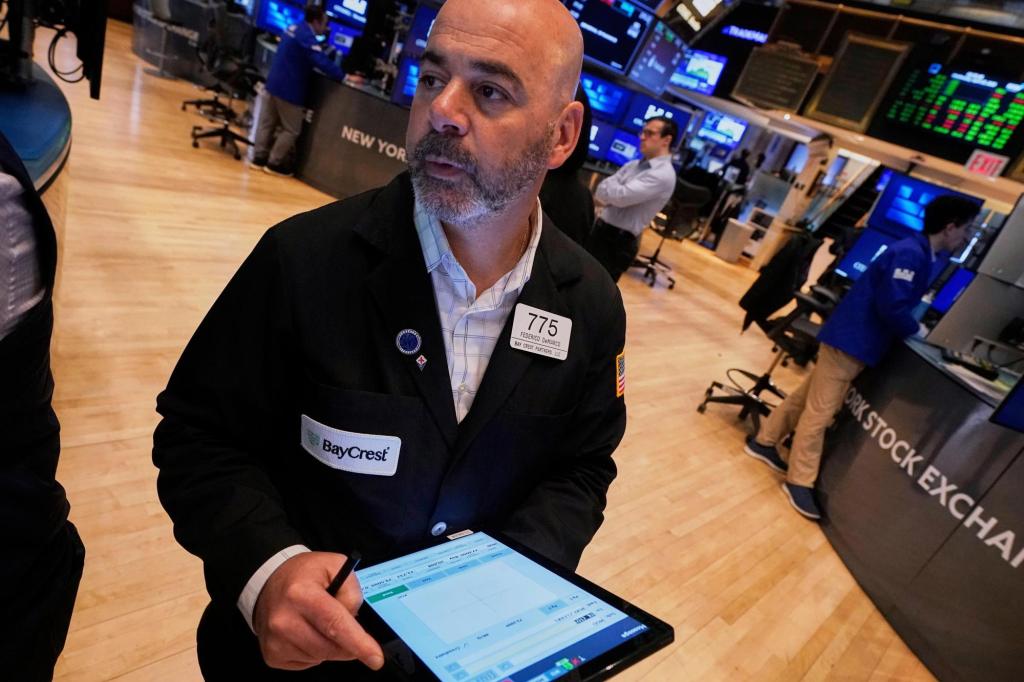
By YURI KAGEYAMA, Associated Press Business Writer
TOKYO (AP) — Global shares traded mixed Thursday, as worries crept back following a Wall Street rally that came after President Donald Trump appeared to back off his criticism of the Federal Reserve and his tough talk in his trade war.
France’s CAC 40 slipped 0.9% in early trading to 7,412.26, while the German DAX shed early 1.0% to 21,755.04. Britain’s FTSE 100 fell 0.3% to 8,375.06. U.S. shares were set to drift lower with Dow futures declining nearly 0.9% at 39,433.00. S&P 500 futures fell 0.8% to 5,359.25.
Japan’s benchmark Nikkei 225 added 0.5% to finish at 35,039.15. Australia’s S&P/ASX 200 rose 0.6% to 7,968.20. South Korea’s Kospi lost 0.1% to 2,522.33. Hong Kong’s Hang Seng declined 0.7% to 21,909.76, while the Shanghai Composite was little changed, inching up less than 0.1% to 3,297.29.
Calling Trump’s policy announcements “headline turbulence,” Tan Jing Yi of the Asia & Oceania Treasury Department at Mizuho Bank warned that global economies could be hurt in the long run, adding, “Sentiments swing from hopes of intense relief to inflicted economic gloom.”
Much of the recent market volatility is because of uncertainty about what Trump will do with his economic policies. Adding to some relief was Trump saying late Tuesday that he has “no intention” to fire the head of the Federal Reserve.
Trump’s tough talk had frightened investors because the Fed is supposed to act independently, without pressure from politicians, so that it can make decisions that may be painful in the short term but are best for the long term.
While a cut to interest rates by the Fed could give the economy a boost, it could also put upward pressure on inflation. Trump also said U.S. tariffs on imports coming from China could come down “substantially” from the current 145%.
“It won’t be that high, not going to be that high,” he said.
Investors are hoping Trump would lower his tariffs after negotiating trade deals with other countries. Trump said this week that he would be “very nice” to the world’s second-largest economy and not play hardball with Chinese President Xi Jinping.
“There is an opportunity for a big deal here,” U.S. Treasury Secretary Scott Bessent said Wednesday.
In energy trading, benchmark U.S. crude rose 55 cents to $62.82 a barrel. Brent crude, the international standard, added 56 cents to $66.68 a barrel.
In currency trading, the U.S. dollar slipped to 142.67 Japanese yen from 143.15 yen. The euro cost $1.1375, up from $1.1322.
AP Business Writer Stan Choe contributed.
Originally Published:



